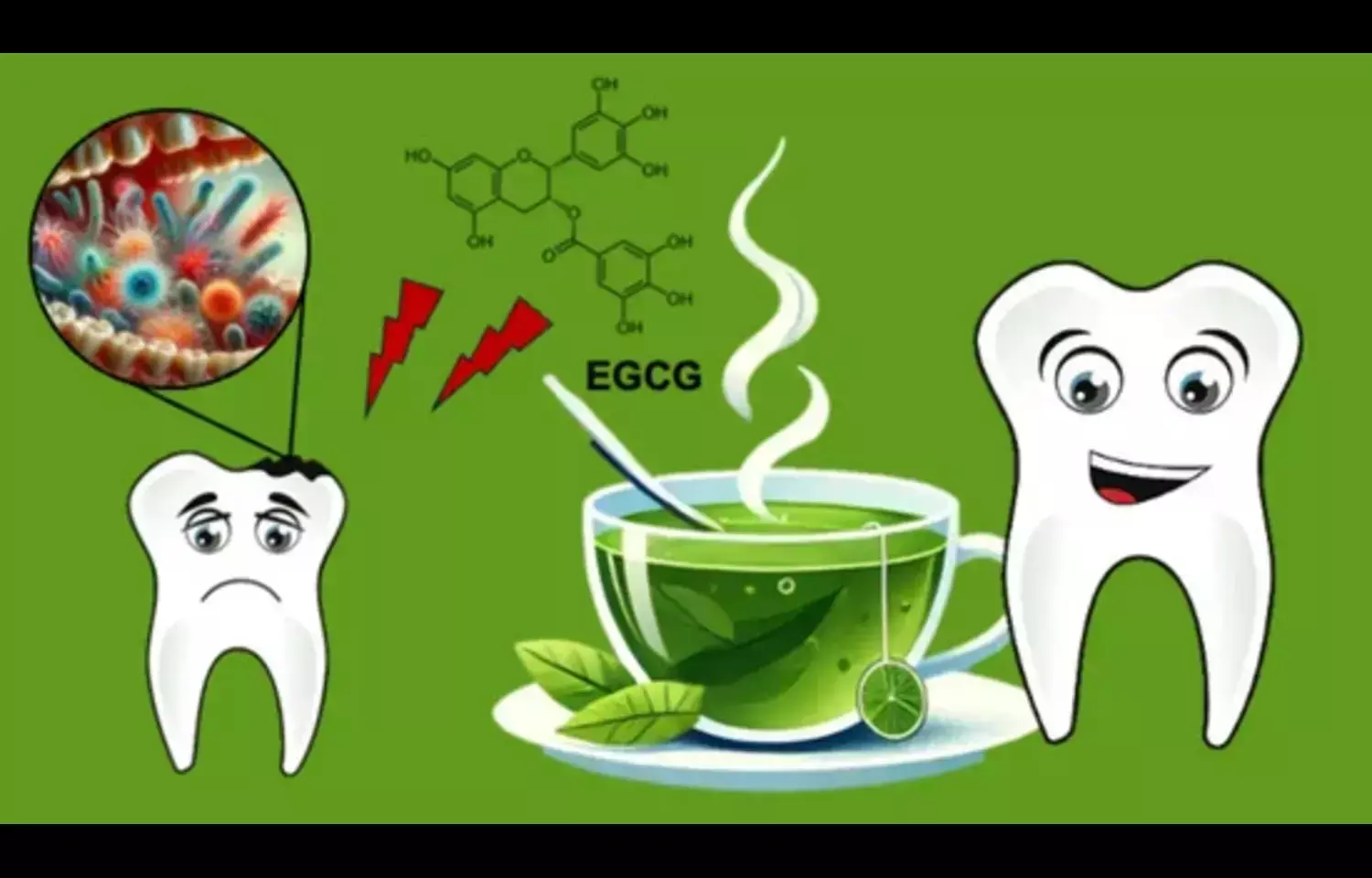Matcha Tea as Adjuvant Therapy Improves Gingival Health, suggests study
- byDoctor News Daily Team
- 19 September, 2025
- 0 Comments
- 0 Mins

Researchers have found in a new study that daily intake of matcha tea for one month improved gingival health and reduced oxidative stress in patients with localized gingivitis. A baseline bleeding on probing (BOP) of 18% predicted better transition to gingival health. The findings support matcha tea as a useful adjunct in gingivitis management; however, larger randomized controlled trials are needed to confirm these benefits. Gingivitis, a reversible stage of periodontal disease, is commonly associated with plaque buildup and inflammatory responses triggered by oxidative stress. Conventional management relies on mechanical plaque control and oral hygiene, but there is growing interest in dietary and natural adjuncts that can enhance periodontal outcomes. Matcha tea, a powdered form of green tea, is rich in polyphenolic compounds, particularly epigallocatechin gallate (EGCG), which has well-documented antioxidant, anti-inflammatory, and antibacterial properties. In the study, participants consumed matcha tea daily for four weeks while following routine oral hygiene measures. Clinical outcomes, including bleeding on probing, plaque index, and gingival index, were assessed at baseline and post-intervention. Results showed significant improvements in gingival health, with reductions in inflammatory markers and oxidative stress. Importantly, patients who had a baseline BOP of about 18% demonstrated the highest probability of achieving gingival health after one month, suggesting a potential predictive role for this clinical parameter. The researchers concluded that matcha tea may enhance periodontal therapy outcomes by modulating host immune responses and reducing microbial activity, thereby promoting healthier gingival tissues. Its natural composition, safety, and accessibility make it an appealing adjuvant therapy for patients with gingivitis. However, the authors highlighted limitations, including the small sample size, short follow-up duration, and lack of long-term data. They recommended larger randomized clinical trials across diverse populations to establish standardized protocols for clinical use. Overall, the study positions matcha tea as a promising adjunctive strategy in managing gingivitis, complementing conventional oral hygiene practices and periodontal therapy. Matcha tea, gingivitis, oxidative stress, periodontal therapy, bleeding on probing, antioxidants, catechins, EGCG
Disclaimer: This website is designed for healthcare professionals and serves solely for informational purposes.
The content provided should not be interpreted as medical advice, diagnosis, treatment recommendations, prescriptions, or endorsements of specific medical practices. It is not a replacement for professional medical consultation or the expertise of a licensed healthcare provider.
Given the ever-evolving nature of medical science, we strive to keep our information accurate and up to date. However, we do not guarantee the completeness or accuracy of the content.
If you come across any inconsistencies, please reach out to us at
admin@doctornewsdaily.com.
We do not support or endorse medical opinions, treatments, or recommendations that contradict the advice of qualified healthcare professionals.
By using this website, you agree to our
Terms of Use,
Privacy Policy, and
Advertisement Policy.
For further details, please review our
Full Disclaimer.
Recent News
AIIMS INI SS January 2026: 4 seats added in 2 spec...
- 01 November, 2025
Treatment in Myocardial Infarction and Non-Obstruc...
- 01 November, 2025
PG medical admissions 2025 commence in Bihar, chec...
- 01 November, 2025
Assam to begin NEET PG 2025 counselling from Novem...
- 01 November, 2025
Daily Newsletter
Get all the top stories from Blogs to keep track.


0 Comments
Post a comment
No comments yet. Be the first to comment!